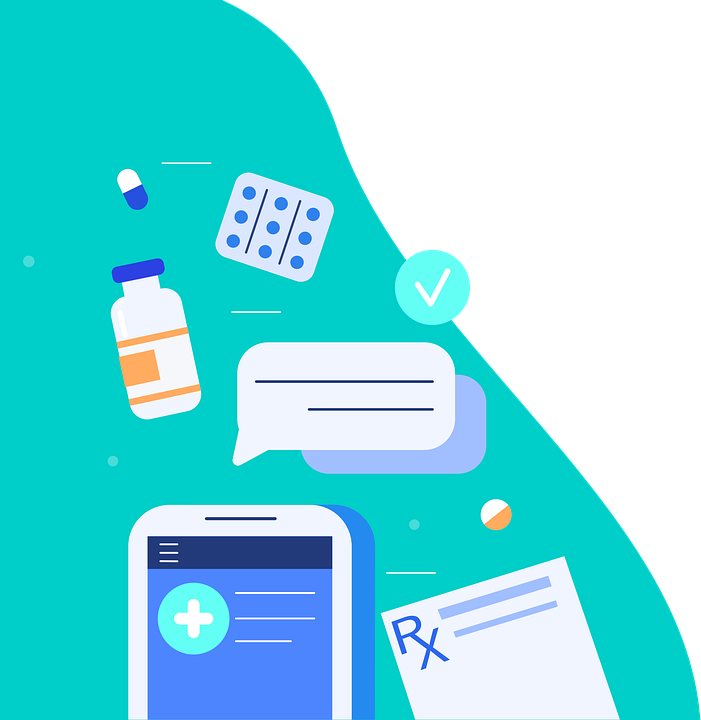What are the Greatest Threats to Healthcare Data Security?
The healthcare industry is one of the most often targeted by cybercriminals and under threat of data theft. In 2020, the healthcare sector suffered at least one data breach per day as hackers took advantage of the vulnerabilities to gain access to the network and demand ransom.
In this article, we will explore what are the greatest threats to healthcare data security, as well as how healthcare organizations can improve their security processes so they don’t become easy victims of data breaches.
Why are Healthcare Organizations a Target for Hackers?

So what makes healthcare organizations a prime target for security breaches?
Several reasons that contribute to this:
- Healthcare organizations collect and keep confidential data from their patients which can be extremely interesting for hackers. The electronic health records (EHR) contain information such as patient name, address, demographics, medical history, diagnoses, lab results, billing data, etc;
- At the same time, many healthcare providers are willing to pay a ransom to regain access to patient data as they need this to treat their patients in the first place. The logic is that it’s better to pay the ransom than risk losing the patient. And while that may be true, it also permits the criminals to do it again. Here’s how to avoid ransomware altogether;
- Finally, there is a severe lack of cybersecurity training and education among medical professionals, which makes them easy targets for cyber attacks.
When selecting the best EMR for small practice, smart providers look for more than just a digital filing cabinet. You need a system that’s part bodyguard, part teammate – something that protects patient data like a hawk while staying easy enough that your team won’t want to tear their hair out learning it.
The right EMR doesn’t just store records; it’s a strategic partner that grows with your practice, handles the tech headaches, and lets you focus on what really matters: patient care.
What Challenges Healthcare Providers Face in Cybersecurity?

We already mentioned a few cybersecurity challenges that healthcare providers face, but understanding these better will help the healthcare industry as a whole better react to data security threats.
- Lack of cybersecurity awareness
A doctor may be an expert in his particular field of medicine, but when it comes to using a computer, that means nothing. If nothing else, medical professionals are often more likely to fall to phishing and other manipulation tactics by hackers
- Lack of cybersecurity training and personnel
Another reason why healthcare organizations are a common target for security threats is that they lack the technical personnel trained in cybersecurity and the medical personnel often lacks basic cybersecurity literacy. This talent shortage is especially prominent in the healthcare industry
- Using outdated operating systems and devices
It is not uncommon for a healthcare organization to use Windows Vista or even Windows XP operating systems and outdated devices. Again, because the support for these systems is often discontinued, these are very vulnerable to data breaches
- Lack of cybersecurity policies and measures
Many healthcare organizations don’t even have clear policies and measures they can take to prevent a data breach, let alone mitigate healthcare data threats. In other words, they don’t know what to do in case of a cyber attack
- Limited IT budget
With the Covid-19 healthcare organizations are often stretched thin to save lives and 90% of their budget goes to the medical part, while IT security and other non-medical departments are often left with scraps.
What Cyber Threats Healthcare Industry Faces the Most?

There are many threats that the healthcare industry faces when it comes to cybersecurity. We’ll mention a few of the biggest ones
Phishing and Malware Attacks
Of course, the healthcare industry is far from the only one vulnerable to malware and phishing attempts.
However, what makes this industry especially “interesting” to cybercriminals as we were able to see, is that they lack the personnel capable of protecting healthcare data against hackers and other threats.
In addition, healthcare organizations also struggle with outdated operating systems and IT security platforms, making the hacker’s job that easier.
Unsecured Devices and Lack of User Authentication
As healthcare organizations continue to adopt digital solutions, such as Electronic Visit Verification, it is crucial to maintain stringent cybersecurity practices. Implementing comprehensive EVV solutions for developmental disability agencies not only ensures service compliance but also enhances data accuracy and protection.
With these tools in place, agencies can defend against unauthorized access and improve overall security posture.
Although we mentioned pagers as a leftover from an earlier time that only hospitals still use, naturally the use of mobile phones in the healthcare sector is becoming dominant.
The problem can occur if these devices are not secure enough and lack data encryption. Hospital WiFi networks are often public, meaning anyone, including a hacker can gain access with ease, leaving the entire organization vulnerable to malicious software.
In fact, a study showed that more than a third of healthcare organizations reported a data loss as a result of a data breach via mobile device.
Furthermore, many healthcare providers also fail to restrict access to their computers with a proper username and password at least, meaning that anyone can use them. As these computers often contain sensitive patient data, this is a serious security risk.
Internet of Medical Things (IoMT)
Speaking of security risks, many healthcare providers switched to the Internet of Medical Things (IoMT) devices that interact and often share data outside the healthcare organization.
These IoT devices often lack the necessary security to sufficiently protect sensitive data and hackers can easily access them or intercept data, leaving healthcare professionals with a serious security problem.
Staff and Vendors
We already mentioned the lack of security training and education among medical professionals, but they could also pose a different kind of internal threat.
While we believe that most are above stealing confidential data, some will do it and sell it to criminals who can then use it for blackmail and identity theft for instance.
Furthermore, the staff might also use patient credit cards as they will often have access to their financial and billing documents to commit fraud.
As for vendors that healthcare organizations work with, their workers are outside the healthcare security system and without a rigorous IT security risk assessment, can themselves be a threat.
Lost or Stolen Devices
The job of a medical professional can be hectic and in the rush, they might lose their mobile device or even get it stolen.
This can be a huge security risk as the criminal might use the device’s stored login data to access the hospital’s computer system.
For this reason, medical staff should, at a minimum use a strong password, multi-factor authentication and a lock-screen to protect their mobile devices in case they get lost or stolen.
In addition, knowing how to encrypt their phones can be a life-saver for doctors.
Conclusion
The healthcare industry is one of the most often attacked by hackers, but the lack of cyber awareness among medical providers is still a big issue.
Hopefully, this article will help you better understand the challenges and threats that a healthcare organization faces, as well as how to best improve healthcare data security against data breaches.